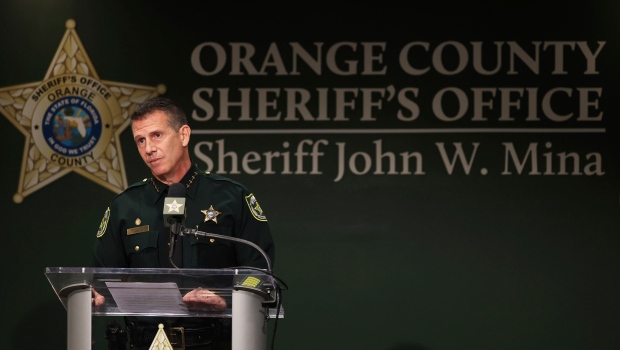Court Date Waived in TV Journalist’s Killing
Columnist Describes the Pain of Having Long COVID
Carlos Watson Pleads Not Guilty to Fraud
NAHJ Delegation Meets With White House Officials
Sports Radio Jock Suspended Over Comments
From Fox, Anti-Blackness Every Day in February
DeSantis Says He’s Boycotting NBC, MSNBC
Latina Columnist finds Her Black Ancestors
Short Takes: Yamiche Alcindor; Al Dia Dallas; Russell Wilson; Al Tompkins; portraying “the emasculation of Black men”?; “Top 200 American Soul Singers of All Time”; Maira Garcia; Michelle Johnson; Adrienne Green; Jack Herrera; Puerto Rican crowdfunding platform for journalists; Ashley Lisenby; Theodore R. Johnson; Caribbean media; AP’s global investigative team; freed Haitian journalist; harassment of Mexican journalists; reasons behind freeing of Nicaraguan political prisoners; Ethiopian suspension of media outlets; beating of Nigerian journalist; Myanmar struggle to build independent media.
Homepage photo: Orange County Sheriff John Mina briefs reporters on the spate of violence in Pine Hills, Fla., near Orlando.
Support Journal-ismsDonations are tax-deductible.
CNN’s Erin Burnett shows body camera video of Keith Melvin Moses’ contentious arrest; interviews Orange County Sheriff John Mina. (video not viewable on Microsoft browsers)
Court Date Waived in TV Journalist’s Killing
The accused shooter of four Wednesday in Central Florida, including slain Orlando television journalist Dylan Lyons, “was slated to be in court Thursday afternoon for an initial appearance, but the public defender representing him waived his appearance, citing ‘mental health’ as the reason in a court filing,” Jeff Weiner reported for the Orlando Sentinel.
A judge ordered the shooter, Keith Melvin Moses, 19, held without bail at the Orange County Jail.
As journalists nationwide mourned the loss of one of their own, more details emerged about Moses.
“Orange County Sheriff John Mina said the suspect was a ‘known gang member’ but the shootings were not gang-related,” Marlene Lenthang reported for NBC News.
“According to information from the Florida Department of Law Enforcement, Moses has been arrested more than a dozen times in the past on charges ranging from grand theft auto and domestic battery, to burglary and resisting arrest,” Randy Rauch reported for Spectrum 13 News, workplace for Lyons and his critically injured co-worker, photojournalist Jesse Walden.
“While Spectrum News 13 was able to obtain a list of Moses’ arrests, most happened when he was a juvenile and no information was available that would allow reporters to determine how many, if any, cases resulted in a conviction.”
At a news conference, Monique Worrell (pictured), state attorney for the Ninth Judicial Circuit and like Moses an African American, had a message for the community.
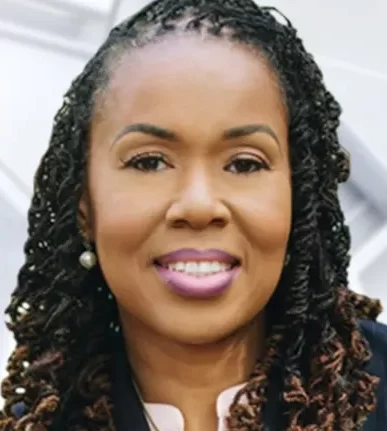 Worrell said that “Florida law prohibits me from discussing the details of any juvenile disposition. By the time this situation reaches the state attorney’s office, it is too late. The state attorney’s office can only respond to hold violent offenders accountable, which we do. But as a community, we must stand and work together to prevent these horrific occurrences from taking place in advance.”
Worrell said that “Florida law prohibits me from discussing the details of any juvenile disposition. By the time this situation reaches the state attorney’s office, it is too late. The state attorney’s office can only respond to hold violent offenders accountable, which we do. But as a community, we must stand and work together to prevent these horrific occurrences from taking place in advance.”
Weiner’s story in the Sentinel offered chilling details on how the shootings unfolded.
“A man told detectives he was cruising around Pine Hills on Wednesday with his friend Nathacha Augustin when he spotted Keith Melvin Moses, who was walking along Hastings Street and ‘seemed down,’ ” Weiner wrote.
“The driver, according to an affidavit, offered the 19-year-old a ride in his Hyundai. About 30 seconds after Moses sat down in the rear passenger seat behind Augustin, the driver said he heard a loud bang. Augustin was bleeding from her face. As the driver pulled over on Hialeah Street to call 911, he said Moses took off running.
“Augustin’s shooting death just before 11 a.m. Wednesday began a daylong rampage by Moses, authorities say.
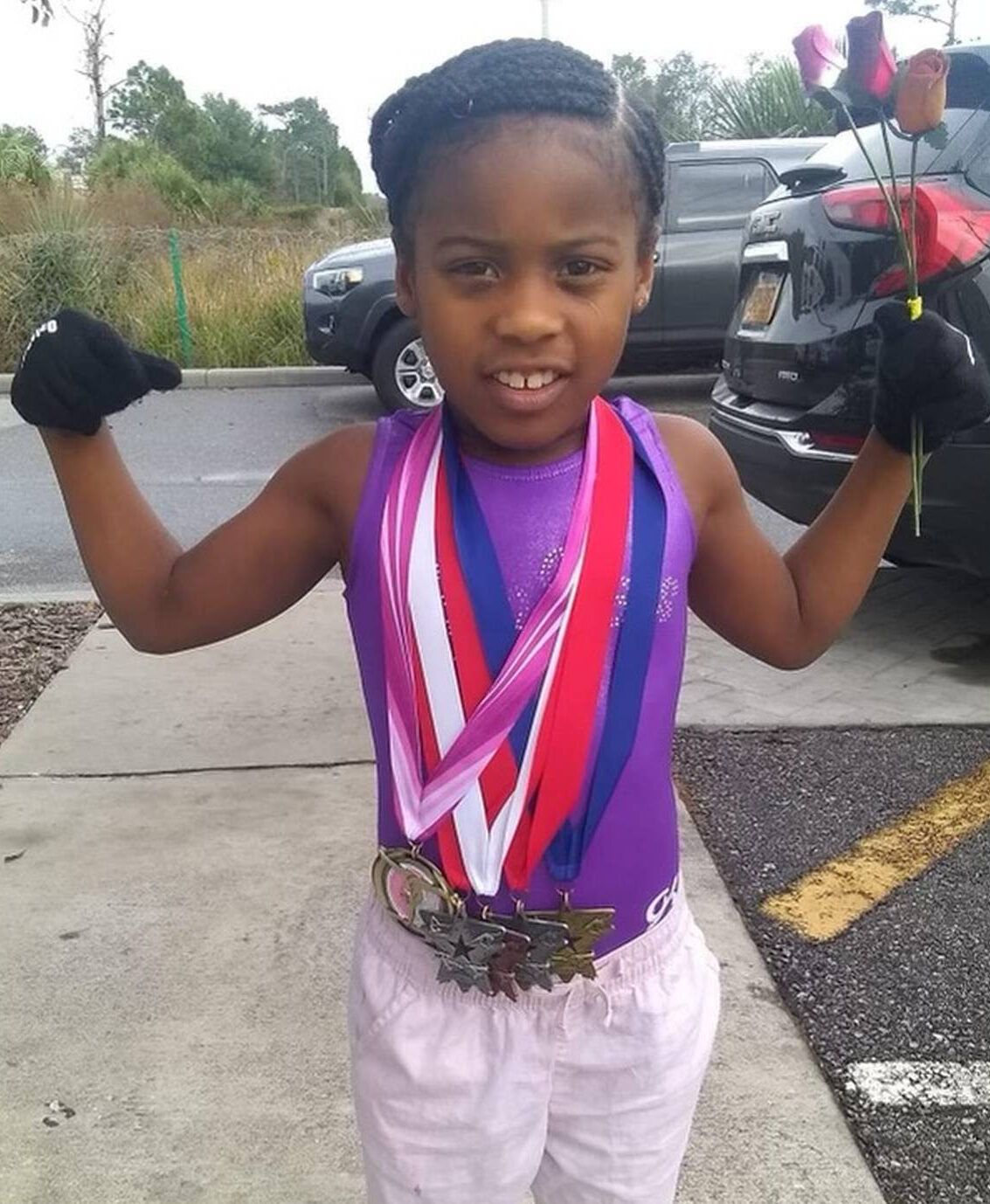 “He returned to the scene later in the day and shot two Spectrum News 13 journalists — killing reporter Dylan Lyons — and then went to a nearby house on Hastings, where he killed 9-year-old T’Yonna Major (pictured) and critically wounded her mother, according to Sheriff John Mina.
“He returned to the scene later in the day and shot two Spectrum News 13 journalists — killing reporter Dylan Lyons — and then went to a nearby house on Hastings, where he killed 9-year-old T’Yonna Major (pictured) and critically wounded her mother, according to Sheriff John Mina.
“An affidavit in support of an arrest warrant in Augustin’s killing shed some light on how the violence began, but not why. The motive remains unclear.
“Mina on Thursday told reporters that Moses was taken to a hospital after his arrest because he said he was struggling to breathe. While there, he fought with hospital staff and had to be restrained, the sheriff said.
“ ‘We transported him to the Orange County Sheriff’s Office to try and conduct an interview. Moses pretended to be asleep and did not speak with the detectives,’ Mina said. ‘At one point, he began physically resisting our detectives and had to be subdued there at the Sheriff’s Office. . . .’

“Body worn camera footage from his arrest showed Moses screaming, ‘They killing me,’ and ‘Let me go,’ as deputies tackled him to the ground and handcuffed him. Later in the video he shouted repeatedly, ‘I can’t breathe.’
“The footage showed deputies cutting a hole in Moses’ pants with a knife to retrieve a handgun. . . .”
Media writer Brian Stelter was among those commenting on the larger significance of the slain reporter’s work. “Lyons exemplified how local TV news is a glue that binds citizens and communities,” Stelter wrote for the Poynter Institute. . . . Anyone who knows local TV knows that it’s a grind, yes, and the gripes about being underpaid and under-appreciated are real. But there’s something else too: a pride that comes from outworking everybody else. A joy that comes from working the street and landing the interview and turning the tape. . . .”
“Committee to Protect Journalists president Jodie Ginsberg added global context on Thursday morning, observing that ‘the majority of journalists killed in 2022 were killed outside of war zones. Local journalists are particularly at risk.’ . . .”
- Michael Levenson and Christine Chung, New York Times: Orlando Journalist Is Mourned as Local Newsrooms Face More Danger
- Scott McDonald, Newsweek: Everything We Know About Florida Shooting Spree Suspect Keith Melvin Moses
- Jeff Weiner and Skyler Swisher, Orlando Sentinel: ‘A light to everyone that knew her’: Orlando student killed in shooting excelled in gymnastics
. . . ‘Unique Challenges and Dangers’ of Black Press
 The Fallen Journalists Memorial Foundation has engaged Claire Rounkles (pictured), a doctoral student at the Missouri School of Journalism, on a project to “support our research and education efforts about the unique challenges and dangers faced by Black reporters and other minorities in media throughout our country’s history,” the foundation announced last fall.
The Fallen Journalists Memorial Foundation has engaged Claire Rounkles (pictured), a doctoral student at the Missouri School of Journalism, on a project to “support our research and education efforts about the unique challenges and dangers faced by Black reporters and other minorities in media throughout our country’s history,” the foundation announced last fall.
“Claire’s research focuses on key moments for the nation, including reporting during the civil rights movement. Her work also lays a foundation for future collaboration between journalists, historians and academic scholars on research on journalists facing violence and death while reporting.”
Congress agreed to, and the president signed off on, the creation of a Fallen Journalists Memorial to be built in the nation’s capital.
Journalist organizations of color have supported the effort.
Vince Randazzo, project director of the Fallen Journalists Memorial Foundation, messaged Journal-isms Friday, “The law will not permit us to put individual names on a physical memorial. However, the memorial will be accompanied by online educational programming that will honor Dylan Lyons and others [who] have died doing their work as journalists.”
Columnist Describes the Pain of Having Long COVID
“Catching COVID-19 for the first time this past November and experiencing the painful, debilitating symptoms of long COVID in the ensuing months made me realize how lucky I am,” Boston Globe columnist Kimberly Atkins Stohr (pictured) wrote Wednesday.
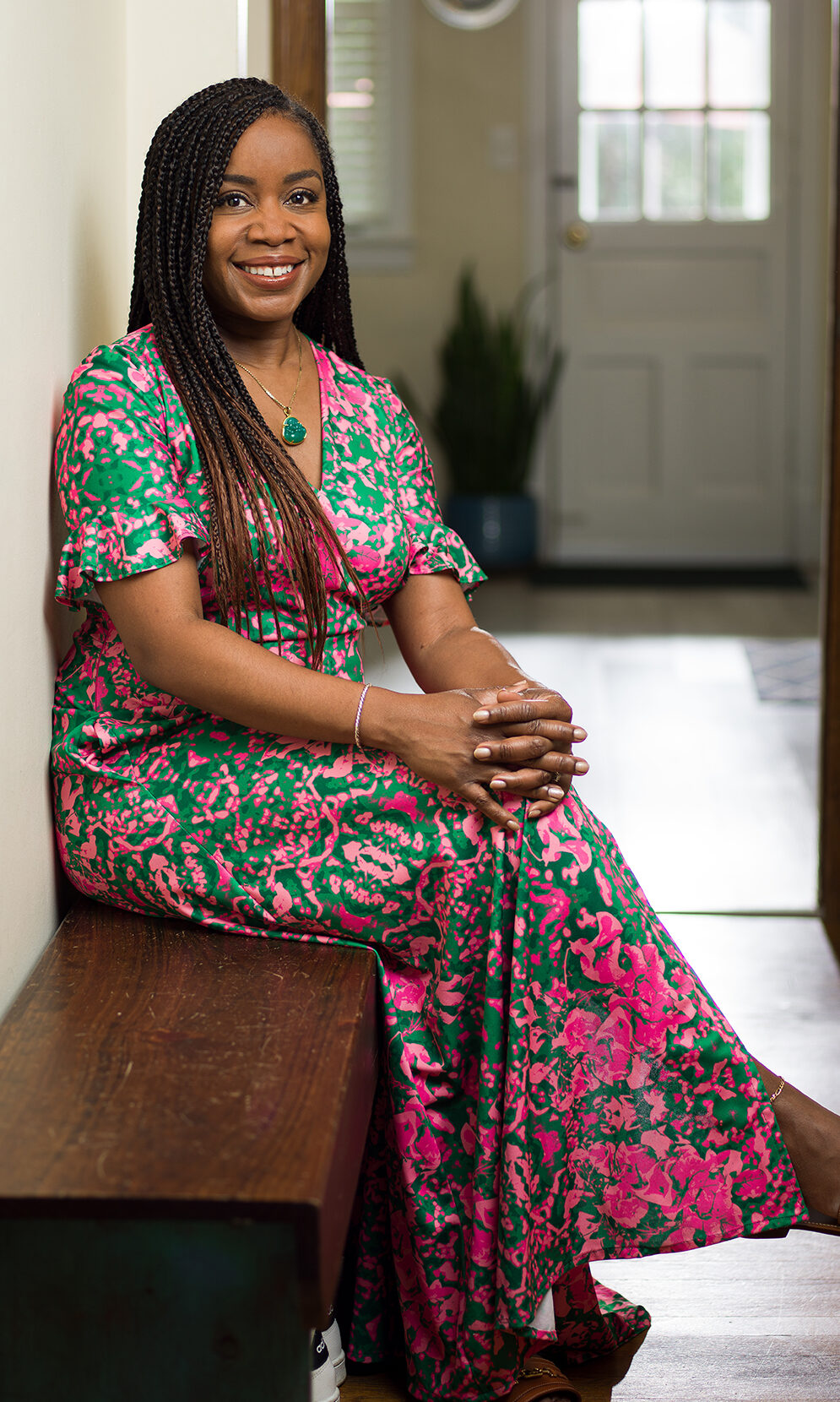 “Yes, the infection was rough, despite the fact that I was fully vaccinated and boosted, having had my last jab just two months before I tested positive. But the pain, confusion, fogginess, and other symptoms that kept coming long after I finally tested negative were much, much worse.
“Yes, the infection was rough, despite the fact that I was fully vaccinated and boosted, having had my last jab just two months before I tested positive. But the pain, confusion, fogginess, and other symptoms that kept coming long after I finally tested negative were much, much worse.
“But I was lucky, because I knew that the illness that was robbing me of my ability to function normally wouldn’t also cost me my livelihood. Many other Americans with long COVID are not so fortunate.
“A recent study published in JAMA Network Open found that people with long COVID are more likely to be unemployed, particularly if they suffer from cognitive symptoms that make holding on to full-time employment difficult if not impossible.
“It’s the latest data point in a growing body of evidence of the persistent and long-lasting personal financial costs that can follow from catching COVID. Even if the nation is ready to move past the pandemic, long COVID will be with us for a while. And patients are paying the price.
“ ‘The medical community needs to be supportive of people’ with long COVID, Dr. Davidson Hamer, a professor at Boston University School of Public Health and School of Medicine and physician at Boston Medical Center, said in an interview. ‘We need to provide medical and psychological support. But we also need to help people to get excused from their work, their studies, and help them fight the kinds of battles they might encounter so they don’t risk losing their jobs, losing their scholarships, and more.’
“For weeks, long COVID made it nearly impossible for me to do the simplest tasks, let alone work. Concentrating on anything — a Zoom meeting, a conversation, a television show plotline — was strenuous and exhausting. My short-term memory was shot. I suffered bouts of confusion. I once got so disoriented during a short walk that I briefly did not recognize my own street.
“Simple words would elude me when I spoke, or my brain would select the wrong ones — ‘accent’ instead of ‘accept’ or ‘comply’ instead of ‘conclude’ — making me sound like I was reading Mad Libs.
“Then there were the nearly constant headaches that felt like an arrow had been shot through my head, temple to temple.
“There were other strange symptoms — the loss of smell and a full-body itchy rash that made it hard to fall and stay asleep — that added insult to injury.
“My doctor likened COVID’s lingering effects on me to a concussive brain injury, requiring rest, avoiding screen time, and old-fashioned patience.
“But through all of this, I knew I could ask my editors and producers for the time and space I needed to heal and was grateful that they put my well-being first by granting me that. I have access to great doctors who have helped me navigate my illness as they are still learning about the complexities and variances of long COVID in real time.
“I cannot imagine the fear and anxiety that losing my employment — and with it, my health care coverage — would have added to an already stressful situation. But far too many people are dealing with that very horror every day. . . .”
(Credit: The Young Turks/YouTube)
Carlos Watson Pleads Not Guilty to Fraud
“The founder of the troubled digital start-up Ozy Media pleaded not guilty Thursday to federal fraud charges accusing him of scheming to prop up his financially struggling company, which hemorrhaged millions of dollars before it shut down amid revelations of possibly deceptive business practices,” Bobby Caina Calvan reported Friday for the Associated Press.
“Federal agents arrested Carlos Watson at a Manhattan hotel earlier in the day after two of the company’s top executives pleaded guilty this month to fraud charges, including Ozy’s then-chief operating officer, Samir Rao, who prosecutors say impersonated a YouTube executive during a pitch to Goldman Sachs, a potential investor.
“The indictment unsealed Thursday in U.S. District Court in Brooklyn accuses Watson and Ozy Media of conspiring to commit securities fraud and wire fraud. Watson was also charged with identity theft for his role in the impersonation of several media executives. . . .”
The online magazine Ozy.com is not targeted at African Americans, but Watson, its co-founder and its public face, is a Black journalist turned entrepreneur who, notably, managed to secure an early investment from, among others, the German media conglomerate Axel Springer, seemingly an out-of-the-box source.
Watson is a former host on MSNBC and CNN.
NAHJ Delegation Meets With White House Officials
“White House Officials met with a delegation from the National Association of Hispanic Journalists on Wednesday, continuing the tradition of providing access to media serving Latino communities. Among that delegation was KENS 5 Anchor Isis Romero,” Romero reported for KENS-TV in San Antonio, Texas.
“The NAHJ delegation met with Xavier Becerra, Secretary of the Department of Health and Human Services, Julie Chavez Rodriguez, Director of the White House Office of Intergovernmental Affairs and Senior Advisor to President Biden, and Emmy Ruiz, Director of Political Strategy and Assistant to the President.
“The discussions began with the topic of immigration, including Romero asking officials about their efforts to combat human smuggling, in the aftermath of recent smuggling cases in San Antonio. Last June, 53 people died in the deadliest human smuggling case in U.S. history, when they were found in a sweltering tractor-trailer near Lackland Air Force Base. . . .
“Also discussed were the topics of pandemic recovery, healthcare access, and Latino representation in public office, among other items. . . .”
This was the NAHJ’s first White House briefing in nearly nine years, according to the association’s Washington chapter, which arranged the meeting “During the Trump Administration, I requested a briefing with top Latino officials at the White House,” said chapter president Brandon Benavides, a former NAHJ national president. “Despite promises from the director of communications at the time, no briefing was held with NAHJ. I’m satisfied the Biden administration granted our request and went above and beyond what we asked for,” Benavides said.
Sports Radio Jock Suspended Over Comments
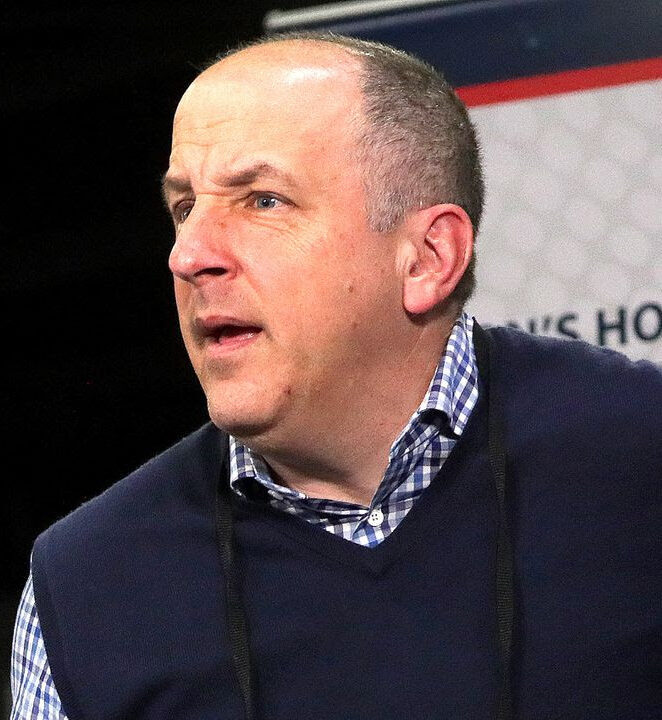 “Tony Massarotti (pictured, by Barry Chin/Boston Globe), the co-host of the Sports Hub’s top-rated Felger and Mazz afternoon drive show, has been suspended for the remainder of this week without pay for insensitive comments he made last week,” Matt Vautour reported Tuesday for MassLive.
“Tony Massarotti (pictured, by Barry Chin/Boston Globe), the co-host of the Sports Hub’s top-rated Felger and Mazz afternoon drive show, has been suspended for the remainder of this week without pay for insensitive comments he made last week,” Matt Vautour reported Tuesday for MassLive.
“His partner Michael Felger opened Tuesday’s show by announcing the suspension. He read a statement for Beasley Media, which owns the Sports Hub and five other Boston stations. . . .
“On Friday, Felger was broadcasting from New Orleans while Massarotti was in the show’s Boston-area studio. Because the show is simulcast on video, they could see one another despite their different locations. Massarotti noticed two Black men behind Felger.
“ ‘I wanna know now who the two guys behind you are. Because if I were you. … They can’t hear us, right? OK, so I would be careful if I were you. Because the last time you were around a couple of guys like that, they stole your car,’ Massarotti said. . . . “
- Rasheed Walters, Boston Herald: If you’re not racist, don’t apologize for being one

(Credit: Andrea Austria / Media Matters)
From Fox, Anti-Blackness Every Day in February
“Rather than using Black History Month to recognize the adversity faced by Black Americans and celebrate Black culture, Fox News, its website, and its online streaming platform Fox Nation have instead used the month of February to peddle problematic anti-Black narratives,” Jasmine Geonzon, Noah Dowe and Ethan Collier wrote Feb. 17 for Media Matters for America.
- “Although Fox has aired a few Black history month segments — such as one on civil rights activist and Supreme Court Justice Thurgood Marshall and one on the first Black woman to hold a pilot’s license, Bessie Coleman — more airtime was spent pushing racist rhetoric. Every day of February so far, Fox figures have spread anti-Black narratives, accusing President Joe Biden’s administration of anti-white racism; fearmongering about critical race theory being taught in K-12 schools as a part of a so-called ‘woke’ liberal agenda; and undermining the existence of and harm done by systemic racism. . . .”
Media Matters went on to provide “a non-exhaustive list of examples of Fox pushing at least one anti-Black narrative every day this month.”
- Justin Baragona, Daily Beast: Fully Unhinged ‘Dilbert’ Guy Tells White People to ‘Get the Fuck Away’ From Black People
- Ashley Parker and Liz Goodwin, Washington Post: Republicans use ‘wokeism’ to attack left — but struggle to define it
(Credit: The Hill/YouTube)
DeSantis Says He’s Boycotting NBC, MSNBC
“Florida Gov. Ron DeSantis will boycott media appearances on NBC News and MSNBC shows, according to his press team, until one of the network’s star reporters apologizes for a question she posed about the governor’s education policies,” Stephen Neukam reported Thursday for The Hill.
“ ‘There will be no consideration of anything related to NBC Universal or its affiliates until and at least Andrea Mitchell corrects the blatant lie she made about the governor,’ DeSantis’s press secretary, Bryan Griffin, said in an email to the network that he posted on Twitter.
“The ‘lie’ that the DeSantis camp is protesting is a question Mitchell put to Vice President Harris last week, in which she asked: ‘What does Governor Ron DeSantis not know about Black history and the Black experience when he says that slavery and the aftermath of slavery should not be taught to Florida schoolchildren?’
“Mitchell later said her questioning was ‘imprecise’ but did not explicitly apologize. The Hill has reached out to NBC for further comment. . . .”
- Jeffrey Barg, “The Grammarian,” Philadelphia Inquirer: Ron DeSantis defines ‘intersectionality’ differently than everyone else does … including the dictionary
- Charles M. Blow, New York Times: The ‘Wicked Wisdom’ of Ron DeSantis (Feb. 15)
- Matt Dixon, Politico: DeSantis wants to roll back press freedoms — with an eye toward overturning Supreme Court ruling
- Eugene Robinson, Washington Post: Ron DeSantis, potential GOP standard-bearer, sounds out of his depth

Latina Columnist finds Her Black Ancestors
We were spending a lot of time together during the pandemic in a COVID bubble,” Los Angeles Times columnist Jean Guerrero began, in one of the more striking commemorations of Black History Month.
The column was published Feb. 13 under the headline, “My Black ancestors were erased from my family’s memory. But I found them.”
“Abuelita Coco, a pale, parenthesis-slim woman, is losing her short-term memory. But she enjoys recalling fragments of her far-away past. She went to her bedroom to rummage through her closet. She pulled out photo albums of her life in Puerto Rico and placed them on her bed. We wore masks and were vaccinated, but I gave her space while she looked.
“Later, she brought me a photo of a wiry, white-passing man. ‘That was my father,’ she said in Spanish, peering at the photo with smiling eyes. ‘Y tu mamá?’ I asked. She told me she had searched and searched for photos of her mother, and couldn’t find any. Perhaps she never brought them from Puerto Rico, she said.
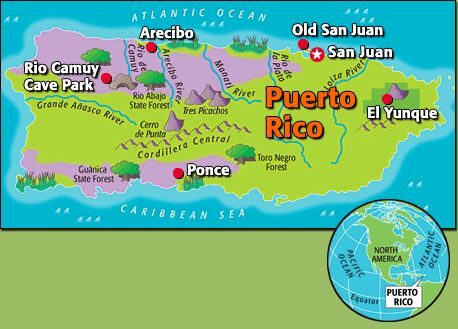 “I was perplexed. There was no way she forgot photos of her mother when she moved in with us when I was a teenager in the early 2000s. It occurred to me that maybe she didn’t want me to see her mother. I recalled a conversation I’d had with my father, from Mexico, when I was writing a book about his side of the family years before. He told me he thought my mother’s mother had Black ancestry. He could see it in her face, in my mother’s face. I objected that they look white. My father told me to look closer. But he said I shouldn’t inquire. He’d asked Abuelita Coco once and it made her ‘real mad.’
“I was perplexed. There was no way she forgot photos of her mother when she moved in with us when I was a teenager in the early 2000s. It occurred to me that maybe she didn’t want me to see her mother. I recalled a conversation I’d had with my father, from Mexico, when I was writing a book about his side of the family years before. He told me he thought my mother’s mother had Black ancestry. He could see it in her face, in my mother’s face. I objected that they look white. My father told me to look closer. But he said I shouldn’t inquire. He’d asked Abuelita Coco once and it made her ‘real mad.’
“Without explaining myself, I asked Abuelita Coco for photos of her mother every time I visited. Each time, she thought I was asking for the first time. One evening, after weeks of gentle inquiries, she brought me a black-and-white photo. ‘That was my mom,’ she said quietly. In the photo, a woman with high cheekbones and a coy smile rested her chin on Abuelita Coco’s shoulder. She wore a casual white dress. She was beautiful and undeniably Black, with dark chocolate skin. ‘Tu mamá era afro-puertorriqueña,‘ I said.
“Abuelita Coco’s face crumpled. ‘Her skin was as white and as beautiful as mine,’ she replied in Spanish, lifting her shirt to expose her pale belly. When I replied that there is nothing wrong with being Black, her eyes filled with tears. Perhaps her mother was ‘trigueña,’ or wheat-colored, she said. But she certainly wasn’t Black. . . .”
Talking to her mother about this is also “grating,” writes Guerrero. “It’s grating to talk with her about this. When I tell her about the government documents I found classifying her mother and her grandmother as Black, she concedes that her family had Black ancestry. But she sees me as obsessed with race; I see her as in denial about its ongoing role in this country. ‘We’re the human race,’ she says, sharply. ‘Why are you looking at f––– race? To separate people like ganado, like caballos?’
“I can’t tell whose mind is more colonized, mine or my mother’s. Racial identity is as personal as it is a product of how we’re seen. But how I see my relatives is different from how many of them see themselves. What if my mother is right, and I’m racializing relatives through my assimilated eyes? . . .”
Guerrero’s was one of several pieces about journalists during Black History Month:
- Samuel Ajala, International Journalists’ Network: This media outlet is creating a community of Black journalists in the U.K.
- Anna Alejo, KCNC-TV, Denver: CBS News Colorado’s Black journalists share insights on community journalism; advise others to dream big
- Eliza Benbow, Daily Tar Heel, University of North Carolina – Chapel Hill: ‘A vehicle and a voice’: NC Black newspapers preserve history, increase representation (Feb. 6)
- Stephanie Gaines-Bryant, WTOP radio, Washington: Journalist April Ryan opens up on being a long-serving White House correspondent
- Jerry McCormick, San Diego Union-Tribune: I founded the San Diego Association of Black Journalists as a support system. It’s family.
- Betsy Morais, Columbia Journalism Review: Q&A: Feven Merid on the Black American journalists who went to Nigeria in the eighties
- Toure, the Grio: What would White History Month look like?
- WCLK-FM, Atlanta: PNC Honors Blacks in Media: Stan Washington Journalism Pioneer from WCLK to AABJ (Feb. 11)
Short Takes
- Yamiche Alcindor marked her final time moderating PBS’ “Washington Week” Friday. She said she hoped it would not be a goodbye but a “see you later.” Alcindor paid tribute to her late mentor Gwen Ifill, who had moderated the program, and said again that after two years, she made “the difficult decision” to step away from the role. Alcindor plans to focus on commitments to NBC News as a Washington correspondent and to finish her upcoming memoir.
- Explaining the DallasNews Corp. decision to reassign the reporting staff of its Spanish-language paper Al Día Dallas to teams on the Dallas Morning News, Executive Editor Katrice Hardy said that she considers Al Día profitable. But Hardy said its content is the “poorest performing content in the room” in terms of readership, Amaris Castillo and Angela Fu reported Thursday for the Poynter Institute. “Pageviews have been declining, as they have across the news industry, and changing demographics provide an opportunity for Al Día to cater to bilingual readers,” they wrote. “We’re really trying to do a better job of growing this audience,” Hardy said. “We’re trying to get the whole newsroom to take on this mission for us and not just have it be on the backs of Al Día.”
 “Denver Broncos quarterback Russell Wilson (pictured) attempted to defend the financial practices of his nonprofit Why Not You Foundation by posting a selfie video on social media, three days after The Arizona Republic published a wide-ranging, five-part investigative story about the tax-exempt organizations founded by Walter Payton NFL Man of the Year award winners,” Jason Wolf reported Wednesday for the Republic. The report “cited nonprofit legal and accounting experts who reviewed his organization’s tax returns and raised concerns about the nonprofit’s inefficiency, high salaries relative to its annual expenses and ‘free-for-all’ governance structure. The report also revealed Wilson’s nonprofit often touts the impact of partnerships, rather than its proportional contribution. . . .”
“Denver Broncos quarterback Russell Wilson (pictured) attempted to defend the financial practices of his nonprofit Why Not You Foundation by posting a selfie video on social media, three days after The Arizona Republic published a wide-ranging, five-part investigative story about the tax-exempt organizations founded by Walter Payton NFL Man of the Year award winners,” Jason Wolf reported Wednesday for the Republic. The report “cited nonprofit legal and accounting experts who reviewed his organization’s tax returns and raised concerns about the nonprofit’s inefficiency, high salaries relative to its annual expenses and ‘free-for-all’ governance structure. The report also revealed Wilson’s nonprofit often touts the impact of partnerships, rather than its proportional contribution. . . .”
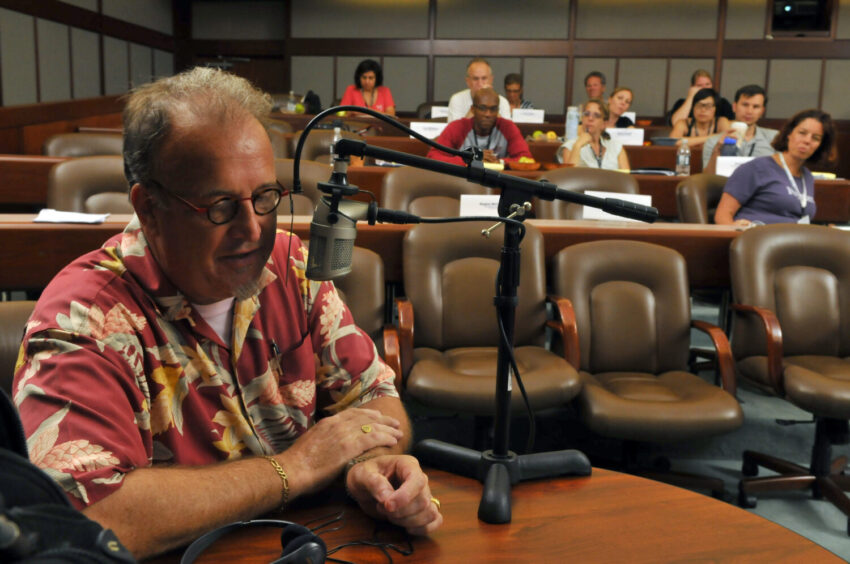
- “After 50 years of making the news and teaching others how to make the news, Al Tompkins is retiring,” Kelly McBride wrote Monday for the Poynter Institute. “Although he promises to do the occasional teaching gig, for the first time in his adult life, he will not have a full-time job in journalism. March 31 will be his last day as a full-time faculty member at Poynter. Although he’ll retain the title of faculty and occasionally step in to teach workshops on a contract basis, Tompkins says this is really it, he’s actually retiring. . . .” In April 2021, Tompkins delivered a well-received presentation before the Journal-isms Roundtable on how disinformation is concocted.

- “Questioning the agenda of a mass media machine that has historically injected its messages — subliminally and otherwise — is understandable, especially in a world in which Fox News exists,” Dustin J. Seibert wrote Wednesday for HuffPost. “But I’m blown away at the degree of wild theories people have taken away from a perfectly innocuous photo: The emasculation of Black men. A Black woman with ‘hard angles’ dominating a ‘soft’ Black man. It’s apparently the origins of COVID, HPV and Avian flu wrapped up in one shot on the beach. This one image single-handedly may have a hand in the corruption of the Black family and the decline of civilization as we know it. . . .”
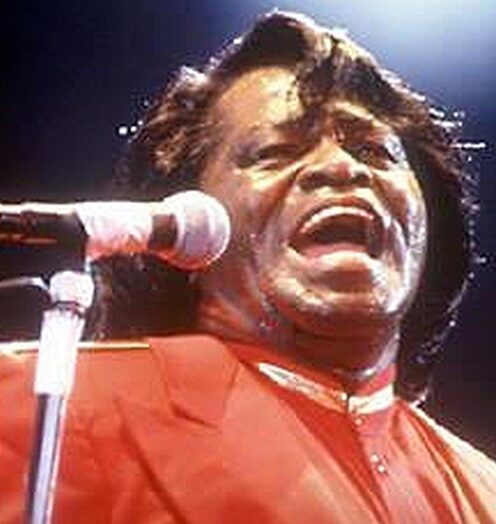 “In commemoration of Black History Month, Lee Bailey’s EURweb is publishing the official Top 200 American Soul Singers of All Time list. It was compiled by an exclusive group of radio leaders, music industry executives, and media specialists from a list of over 450 nominees,” Diane Blackmon-Bailey wrote for EURweb.com Friday. The top five: James Brown (pictured), Michael Jackson, Prince, Aretha Franklin and Luther Vandross.
“In commemoration of Black History Month, Lee Bailey’s EURweb is publishing the official Top 200 American Soul Singers of All Time list. It was compiled by an exclusive group of radio leaders, music industry executives, and media specialists from a list of over 450 nominees,” Diane Blackmon-Bailey wrote for EURweb.com Friday. The top five: James Brown (pictured), Michael Jackson, Prince, Aretha Franklin and Luther Vandross.
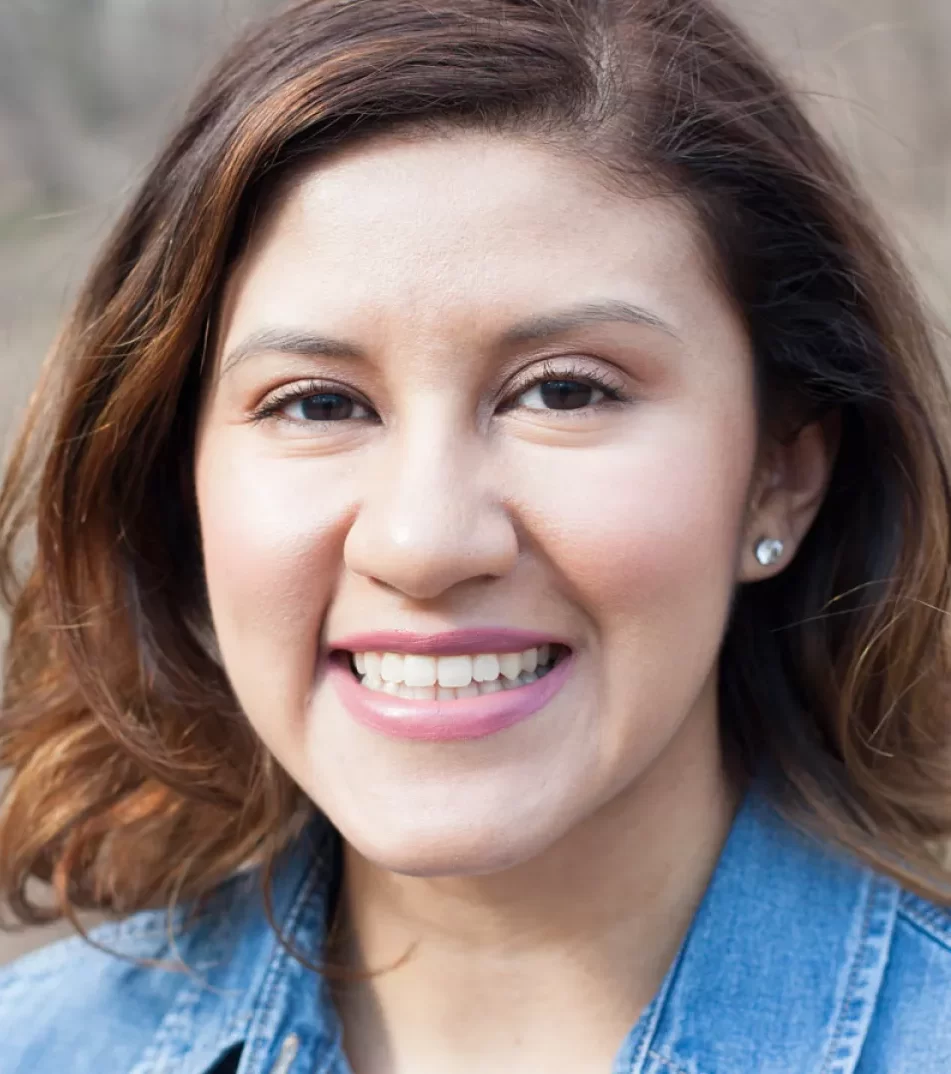 Maira Garcia (pictured), most recently an audience editor on the New York Times culture desk shaping audience analysis and strategy, awards show coverage and live breaking news, is joining the Los Angeles Times to edit its television coverage. The L.A. Times said Tuesday, “She’ll be working with Deputy Editor Matt Brennan and The Times’ talented team to direct our reporting and criticism about a medium in the midst of creative and economic transformation.”
Maira Garcia (pictured), most recently an audience editor on the New York Times culture desk shaping audience analysis and strategy, awards show coverage and live breaking news, is joining the Los Angeles Times to edit its television coverage. The L.A. Times said Tuesday, “She’ll be working with Deputy Editor Matt Brennan and The Times’ talented team to direct our reporting and criticism about a medium in the midst of creative and economic transformation.”
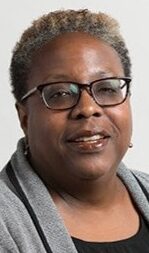 Michelle Johnson (pictured), Boston Globe veteran and associate professor emerita of the Boston University Department of Journalism, is returning to the university. Johnson is becoming an “Expert in Residence” at Spark!, a technology incubator and experiential learning lab. She will be assigned to some projects with its media partner, The Grio.
Michelle Johnson (pictured), Boston Globe veteran and associate professor emerita of the Boston University Department of Journalism, is returning to the university. Johnson is becoming an “Expert in Residence” at Spark!, a technology incubator and experiential learning lab. She will be assigned to some projects with its media partner, The Grio.
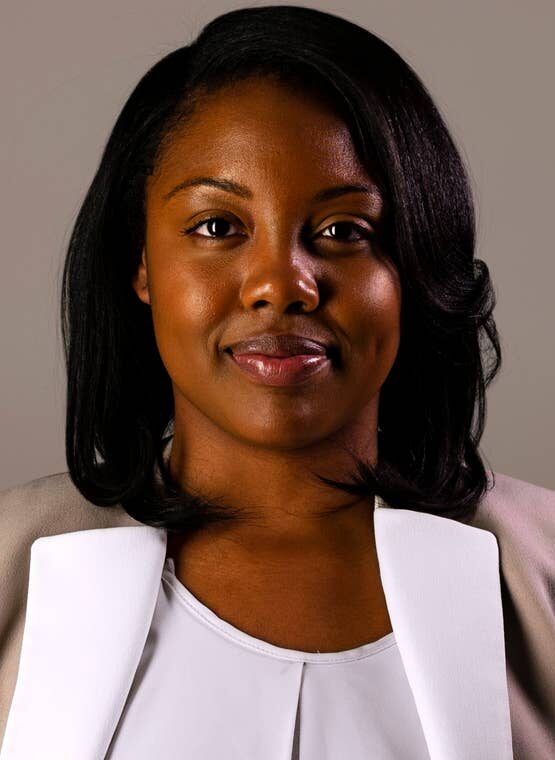 Adrienne Green (pictured), deputy editor for special projects at The New York Times Magazine, and
Adrienne Green (pictured), deputy editor for special projects at The New York Times Magazine, and 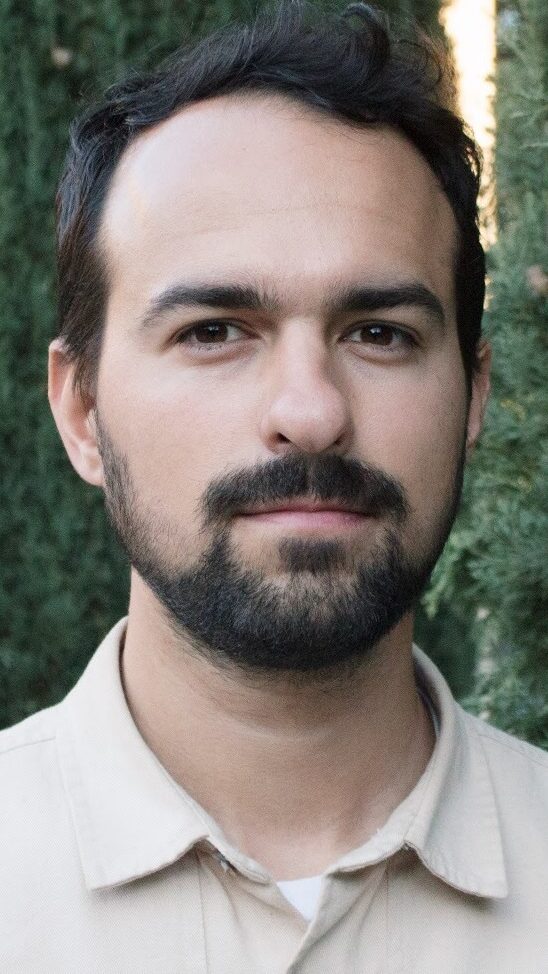 Jack Herrera (pictured), senior editor at Texas Monthly; are among honorees for American Society of Magazine Editors’ NEXT Awards for Journalists Under 30, the society announced Thursday.
Jack Herrera (pictured), senior editor at Texas Monthly; are among honorees for American Society of Magazine Editors’ NEXT Awards for Journalists Under 30, the society announced Thursday.
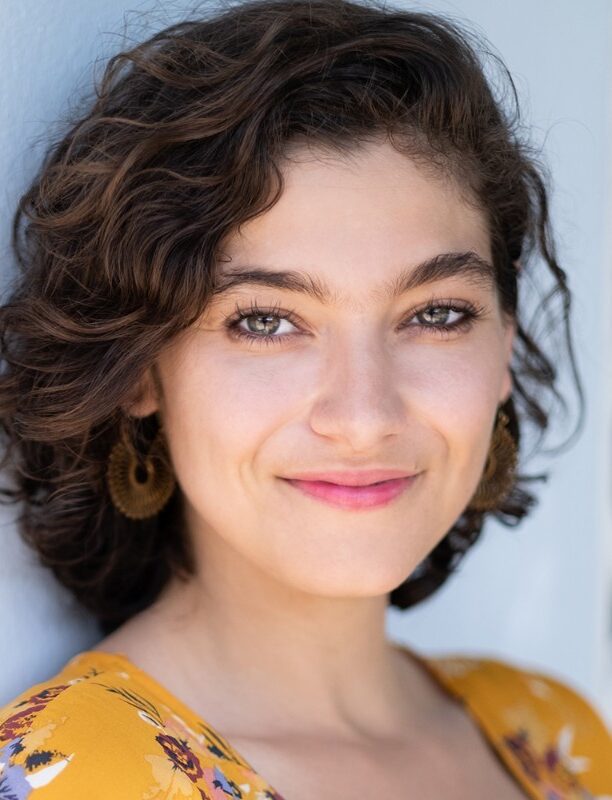 In 2020, Camille Padilla Dalmau (pictured) “noticed that Puerto Rican scientists all over the world were lending their expertise to help make sure the already vulnerable healthcare system in Puerto Rico wouldn’t collapse,” Hanaa’ Tameez reported Wednesday for Nieman Lab. “Padilla Dalmau and fellow journalist Edmy Ayala started partnering with those scientists to publish a newsletter that delivered verified, factual information about the pandemic to Puerto Ricans in a calm, non-alarming way. They published under the name ‘9 Millones’ (meaning ‘nine million’), which signifies the three million Puerto Ricans living on the island and the six million in the diaspora. . . . Padilla knew there was a market for new, constructive, and nuanced storytelling about Puerto Rico. Today, 9 Millones is both a publishing and crowdfunding platform for journalists looking to investigate stories about Puerto Rico that are going untold in mainstream news outlets. . . .”
In 2020, Camille Padilla Dalmau (pictured) “noticed that Puerto Rican scientists all over the world were lending their expertise to help make sure the already vulnerable healthcare system in Puerto Rico wouldn’t collapse,” Hanaa’ Tameez reported Wednesday for Nieman Lab. “Padilla Dalmau and fellow journalist Edmy Ayala started partnering with those scientists to publish a newsletter that delivered verified, factual information about the pandemic to Puerto Ricans in a calm, non-alarming way. They published under the name ‘9 Millones’ (meaning ‘nine million’), which signifies the three million Puerto Ricans living on the island and the six million in the diaspora. . . . Padilla knew there was a market for new, constructive, and nuanced storytelling about Puerto Rico. Today, 9 Millones is both a publishing and crowdfunding platform for journalists looking to investigate stories about Puerto Rico that are going untold in mainstream news outlets. . . .”
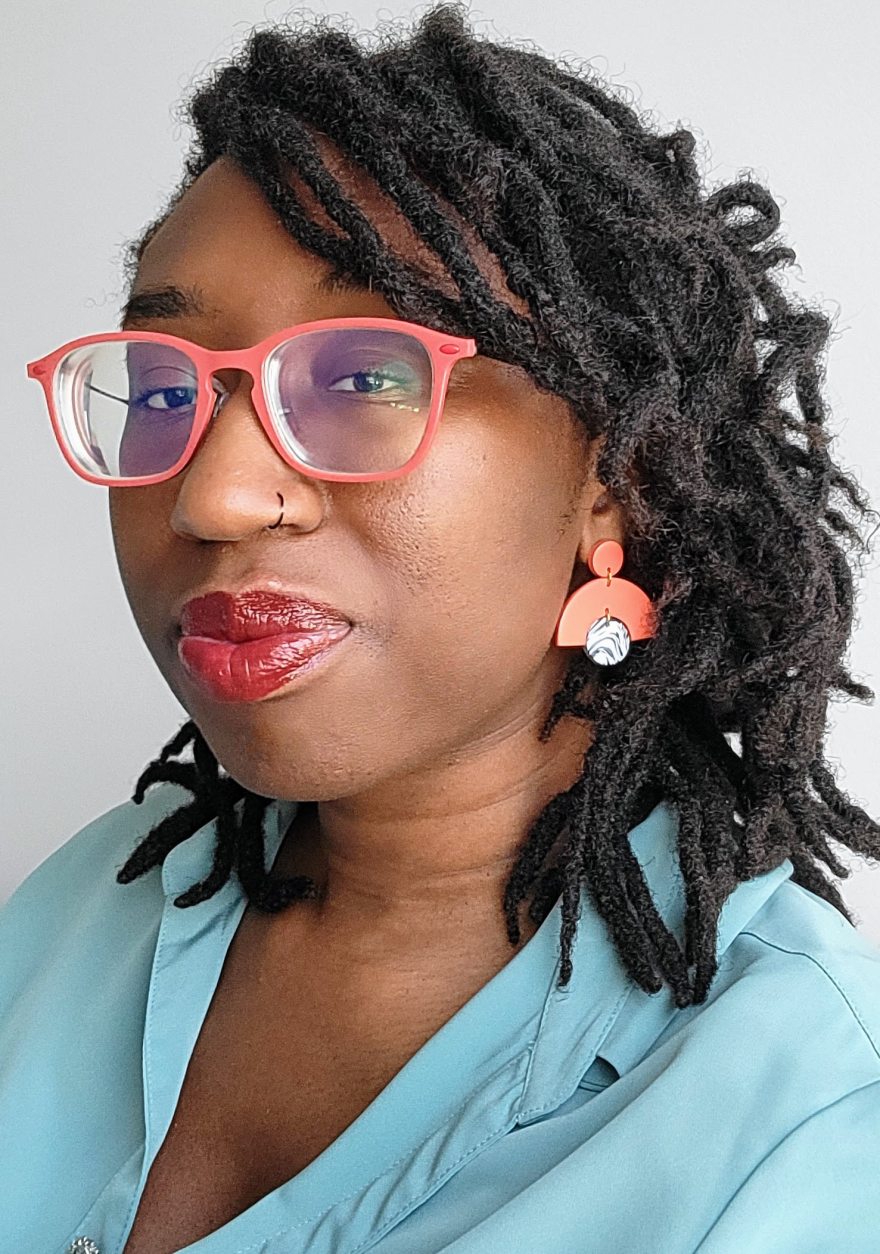 “After an intensive search process, St. Louis Public Radio (STLPR) has selected Ashley Lisenby (pictured) to serve as the station’s next News Director,” the station announced Wednesday. “Lisenby will supervise and support STLPR’s local newsroom of 28 reporters, producers, and editors. . . . Lisenby was most recently News Producer/Editor at Weekend Edition for NPR, where she pitched national and international news segments, produced host interviews, and wrote and edited audio scripts. In this role she also edited NPR’s Up First podcast. . . .”
“After an intensive search process, St. Louis Public Radio (STLPR) has selected Ashley Lisenby (pictured) to serve as the station’s next News Director,” the station announced Wednesday. “Lisenby will supervise and support STLPR’s local newsroom of 28 reporters, producers, and editors. . . . Lisenby was most recently News Producer/Editor at Weekend Edition for NPR, where she pitched national and international news segments, produced host interviews, and wrote and edited audio scripts. In this role she also edited NPR’s Up First podcast. . . .”
- Theodore R. Johnson is joining The Washington Post’s Opinion section as a contributing columnist, Editorial Page Editor David Shipley announced Tuesday. “Johnson is a retired U.S. Navy commander and author of ‘When the Stars Begin to Fall: Overcoming Racism and Renewing the Promise of America.’ He is currently the director of New America’s Us@250 initiative. . . .”
- In the Caribbean media, “The multipronged advances of tech giants such as Google and Meta have clearly exacerbated long-standing domestic difficulties,” Wesley Gibbings, a Trinidad and Tobago–based author, journalist and press freedom campaigner, wrote Wednesday for Columbia Journalism Review. “The rising cost of producing news in the context of microeconomies is incapable of matching algorithmically curated free news and information on social media platforms. Domestic advertisers are also now more inclined to bypass domestic media by purchasing cheaper space on platforms that have the potential to reach bigger, more targeted markets, including a Caribbean diaspora whose numbers vastly exceed those at home. . . .”
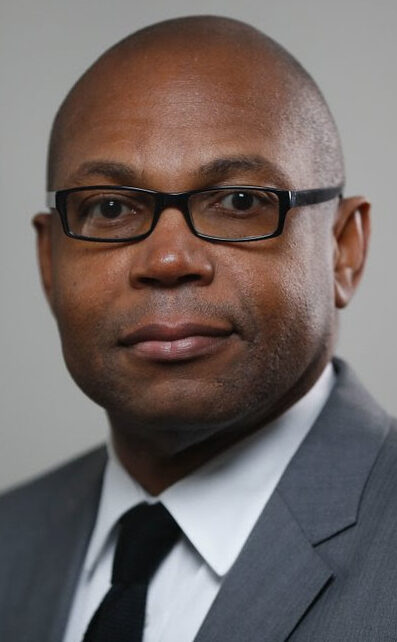 Last year, te Associated Press added a diverse group of three journalists to its global investigative team: Grace Ekpu, Sarah El Deeb and Helen Wieffering. “One of the things I’m trying to address [is] to enable to local outlets to do the reporting themselves,” Ron Nixon (pictured), vice president, news and head of investigations, enterprise, partnerships and grants, messaged Journal-isms Friday. “We have made some great strides on the hiring locals. Many of our African, Asian, and Latin American staff are local. The investigative team has reporters who are from the regions as well.” Some African journalists have complained that too many African media owners will run pieces about a neighboring country written by a Western news service instead of by a journalist from the country in question. Separately, Daisy Veerasingham, Associated Press president and CEO, has said, “We need to look like the places we cover.”
Last year, te Associated Press added a diverse group of three journalists to its global investigative team: Grace Ekpu, Sarah El Deeb and Helen Wieffering. “One of the things I’m trying to address [is] to enable to local outlets to do the reporting themselves,” Ron Nixon (pictured), vice president, news and head of investigations, enterprise, partnerships and grants, messaged Journal-isms Friday. “We have made some great strides on the hiring locals. Many of our African, Asian, and Latin American staff are local. The investigative team has reporters who are from the regions as well.” Some African journalists have complained that too many African media owners will run pieces about a neighboring country written by a Western news service instead of by a journalist from the country in question. Separately, Daisy Veerasingham, Associated Press president and CEO, has said, “We need to look like the places we cover.”
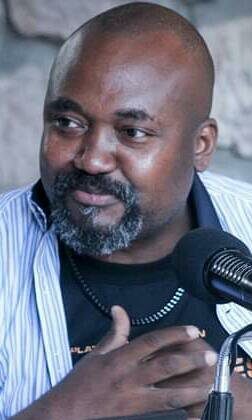 “A journalist kidnapped earlier this month in Haiti was released last Friday, February 17, by his captors demanding US$ 200,000 for his release,” Javier Valdivia reported Monday for the Inter American Press Association. “Journalist Valéry Numa confirmed on his Twitter account that his colleague Jean Thony Lorthé (pictured) was released after the ransom demanded that the presenter of the radio program ‘Rafrechi Memwa,’ broadcast in Creole on Radio Vision 2000, was paid. . . . “
“A journalist kidnapped earlier this month in Haiti was released last Friday, February 17, by his captors demanding US$ 200,000 for his release,” Javier Valdivia reported Monday for the Inter American Press Association. “Journalist Valéry Numa confirmed on his Twitter account that his colleague Jean Thony Lorthé (pictured) was released after the ransom demanded that the presenter of the radio program ‘Rafrechi Memwa,’ broadcast in Creole on Radio Vision 2000, was paid. . . . “
- The Inter American Press Association said Tuesday it had “rejected the persistent campaign of harassment being carried out by Layda Sansores San Román, governor of Campeche, Mexico, against the media and journalists. The organization urged the official to suspend the practice of smearing immediately to respect press freedom and the work of journalists. From her television program ‘Martes del Jaguar,’ the governor has been carrying out continuous attacks against state and national media since 2022, as well as against journalists, insulting and slandering them and questioning their coverage. . . .”
- Nicaragua’s decision this month to release 222 political prisoners, including at least six journalists and media entrepreneurs and two journalism students, is due more to the economic sanctions imposed on the Daniel Ortega regime and international pressure, César López Linares reported Feb. 10 for LatAm Journalism Review, quoting Nicaraguan journalists. “Daniel Ortega handed over all the negotiating chips with the political prisoners because he is desperate in the face of the sanctions. The United States had spoken to him quite clearly: If there is no release of prisoners, no door is open for dialogue,” said Lucía Pineda, press chief for 100% Noticias. “Ortega said there is no negotiation, but there is a very strong choking inside the regime.”
- Authorities in Ethiopia should reverse the recent suspensions of more than a dozen news outlets and let members of the press and journalist advocacy groups work freely, the press freedom groups Reporters Without Borders and the Committee to Protect Journalists said Friday. “The day after the suspensions were imposed, the regional police arrested Muhiyadin Mohammed Ali, a journalist with one of the suspended TV channels, Kalsan TV, who was coordinating the publication of a press release condemning the measure,” Reporters Without Borders said. “Charged with ‘spreading false propaganda’ on social media for criticising the regional ruling party in a Facebook Live broadcast, he was held for two days in a Fafan zone police station and then freed on condition that he published no articles critical of the government for three months. . . .”
- “Nigerian authorities should hold accountable those responsible for beating journalist Jonathan Ugbal, publicly advise political supporters to not attack the press, and not unduly hinder access to election-related sites,” the Committee to Protect Journalists said Friday. On Wednesday, “about 20 supporters of Nigeria’s Peoples Democratic Party (PDP) hit and kicked Ugbal, editor of the privately owned news site CrossRiverWatch, as he worked to report on a dispute between the political supporters and a community youth group outside a PDP office in Calabar, the capital of Cross River State, according to a report published by Ugbal’s outlet and the journalist, who spoke to CPJ over the phone. . . .” Voters in Africa’s most populous country head to the polls this week to select their next president amid mounting unhappiness in the country due to worsening insecurity and economic hardship,” in the words of the BBC.
- “As Myanmar’s bloody coup ticks over into its third year, local journalists continue to struggle to sustain and build independent media voices in support of democracy both inside the country and in the growing refugee diaspora,” the International Press Institute reported Wednesday. “It’s an evolving ecosystem depending on an underground network, including citizen journalists, philanthropic support, experimentation in distribution and voices — and raw courage in the face of a violent oppression by the Tatmadaw military junta. . . .”
To subscribe at no cost, please send an email to journal-isms+subscribe@groups.io and say who you are.
Facebook users: “Like” “Richard Prince’s Journal-isms” on Facebook.
Follow Richard Prince on Twitter @princeeditor
Richard Prince’s Journal-isms originates from Washington. It began in print before most of us knew what the internet was, and it would like to be referred to as a “column.” Any views expressed in the column are those of the person or organization quoted and not those of any other entity. Send tips, comments and concerns to Richard Prince at journal-isms+owner@
View previous columns (after Feb. 13, 2016).
View previous columns (before Feb. 13, 2016)
- Diversity’s Greatest Hits, 2018 (Jan. 4, 2019)
- Book Notes: Is Taking a Knee Really All That? (Dec. 20, 2018)
- Book Notes: Challenging ’45’ and Proudly Telling the Story (Dec. 18, 2018)
- Book Notes: Get Down With the Legends! (Dec. 11, 2018)
- Journalist Richard Prince w/Joe Madison (Sirius XM, April 18, 2018) (podcast)
- Richard Prince (journalist) (Wikipedia entry)
- February 2018 Podcast: Richard “Dick” Prince on the need for newsroom diversity (Gabriel Greschler, Student Press Law Center, Feb. 26, 2018)
- Diversity’s Greatest Hits, 2017 — Where Will They Take Us in the Year Ahead?
- Book Notes: Best Sellers, Uncovered Treasures, Overlooked History (Dec. 19, 2017)
- An advocate for diversity in the media is still pressing for representation, (Courtland Milloy, Washington Post, Nov. 28, 2017)
- Morgan Global Journalism Review: Journal-isms Journeys On (Aug. 31, 2017)
- Diversity’s Greatest Hits, 2016
- Book Notes: 16 Writers Dish About ‘Chelle,’ the First Lady
- Book Notes: From Coretta to Barack, and in Search of the Godfather
- Journal-isms’ Richard Prince Wants Your Ideas (FishbowlDC, Feb. 26, 2016)
- “JOURNAL-ISMS” IS LATEST TO BEAR BRUNT OF INDUSTRY’S ECONOMIC WOES (Feb. 19, 2016)
- Richard Prince with Charlayne Hunter-Gault, “PBS NewsHour,” “What stagnant diversity means for America’s newsrooms” (Dec. 15, 2015)
- Book Notes: Journalists Follow Their Passions
- Book Notes: Journalists Who Rocked Their World
- Book Notes: Hands Up! Read This!
- Book Notes: New Cosby Bio Looks Like a Best-Seller
- Journo-diversity advocate turns attention to Ezra Klein project (Erik Wemple, Washington Post, March 5, 2014)

